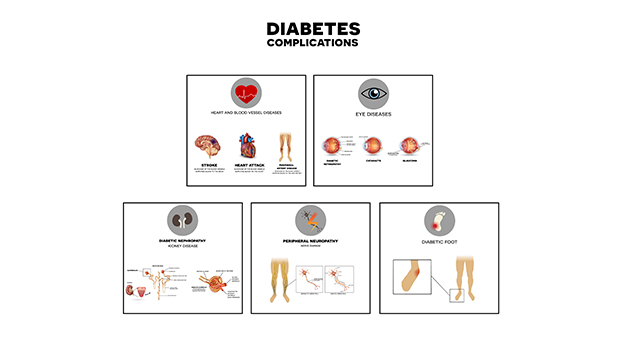Can Fasting Improve Insulin Production in People with Diabetes
Diabetes is often depicted as a lifestyle issue, but many T2 people struggle to produce a normal amount of insulin, referred to as beta-cell dysfunction

Beta cells in the pancreas are responsible for producing insulin and in many people with type 2 diabetes, these cells don’t produce a normal amount of insulin.
Recent Research
Recent research from the University of Southern California has found that a unique approach to fasting can impact the body similarly to traditional fasting and actually reprogram dysfunctional beta-cells.
“The fasting-like diet promotes the growth of new insulin-producing pancreatic cells that reduce symptoms of type 1 and type 2 diabetes in mice, according to the study on mice and human cells led by Valter Longo, director of the Longevity Institute at the USC Leonard Davis School of Gerontology,” explains the report.
According to a 2016 study published in Diabetes Care, approximately 60 percent of patients with type 2 diabetes cannot reverse diabetes because their pancreas doesn’t produce adequate amounts of healthy beta-cells, which means they don’t produce enough insulin.
This research could significantly impact more than half of those diagnosed with type 2 diabetes, and some of those with type 1 diabetes, too.
Fasting-Mimicking Diet (FMD)
The fasting-mimicking diet (FMD) consists of eating a very low-carb, low-protein diet for 4 days, and getting your calories primarily from fat instead.
“Cycles of a fasting-mimicking diet and a normal diet essentially reprogrammed non-insulin-producing cells into insulin-producing cells,” explained Longo. “By activating the regeneration of pancreatic cells, we were able to rescue mice from late-stage type 1 and type 2 diabetes. We also reactivated insulin production in human pancreatic cells from type 1 diabetes patients.”
The new, healthy adult beta-cells appeared to prompt the process of replacing dysfunctional cells with new, functional ones, even in mice with the highest levels of beta-cell damage.
In humans with type 1 diabetes, the results of fasting produced similar results of accelerated insulin production.
Even minimal fasting — just five days each month — has been linked in research by Longo and others to reducing a person’s risk of cancer, diabetes, and heart disease. It’s also shown to improve the side-effects of diseases like multiple sclerosis and improving the efficacy of chemotherapy while treating cancer.
“These findings warrant a larger FDA trial on the use of the fasting-mimicking diet to treat human diabetes patients to help them produce normal levels of insulin while improving insulin function,” Longo said.
Other research supports the benefits of fasting
Other recent research on fasting or a severe calorie reduction has also shown to improve beta-cell function.
A 2012 study comparing simply a low-calorie diet to a low-carb ketogenic diet found that the ketogenic (high fat) approach actually improved blood sugar levels the most in obese patients with diabetes.
A 2016 study on the benefits of a very low-calorie diet (VLCD) found that 40 percent of patients with type 2 diabetes achieved “remission” for at least 6 months, and achieved an HbA1c under 7.0 percent.
Intermittent fasting — which consists of not consuming any calories either every day from bedtime until 1 p.m. or for 24 hours once per week — is also very trendy these days, but it’s not for everyone and should be approached with support from your healthcare team.
Should you start an FMD diet?
If you’re considering FMD, keep in mind that it does not call for eating a low-calorie ketogenic diet every single day. And a diet consisting of only fat would not be safe nor beneficial.
And an FMD is not going to compensate for poor nutrition habits throughout the rest of the month.
Instead, the first place to start would be making simpler improvements in your nutrition and lifestyle habits for a big impact on your blood sugar levels and diabetes health.
- Strive to eat vegetables at least twice per day
- Reduce the number of package products you eat
- Increase the number of whole foods you eat
- Reduce the amount of alcohol you drink each week
- Quit smoking
- Go for a daily walk or get other daily activity
- Reduce or eliminate entirely the number of sugary beverages you drink
“I’ve seen patients lower their A1c dramatically just by cutting out soda,” said Mara Schwartz, CDE, RN, a coordinator of the Diabetes Prevention Program at Self Regional Healthcare in Greenwood, South Carolina.
Before you dive into a fasting lifestyle and severe macronutrient restriction, take a closer look at the simplest changes you can make, because no amount of fasting can compensate for consistently unhealthy lifestyle choices.





